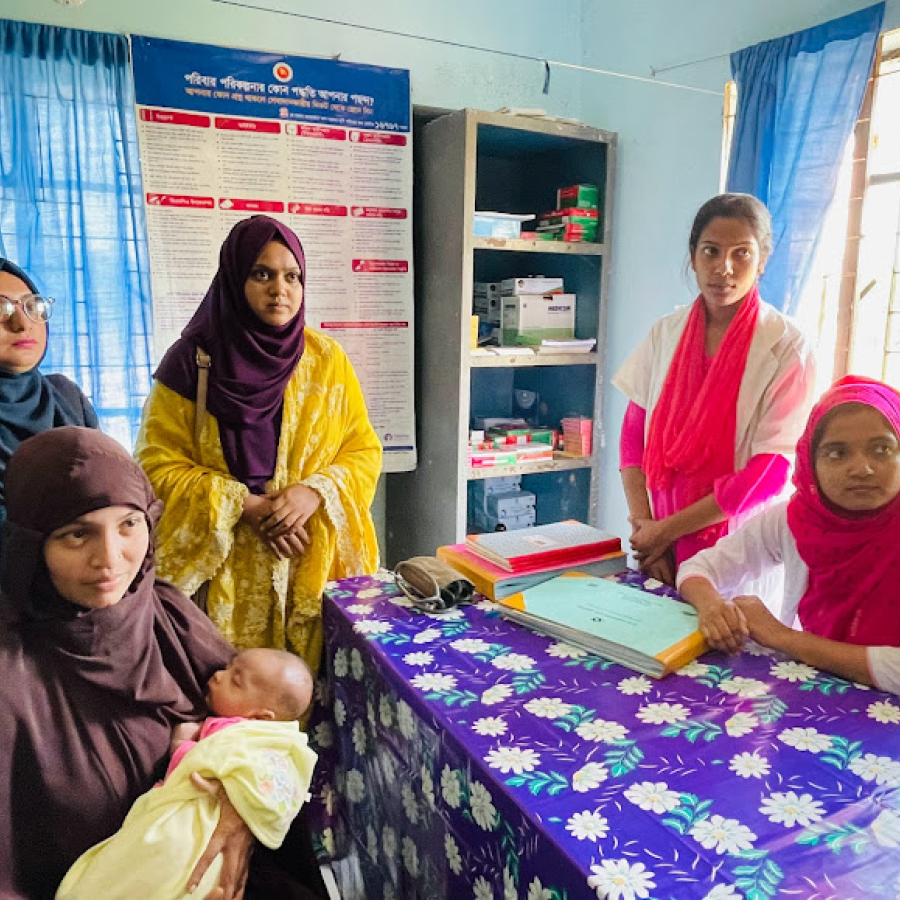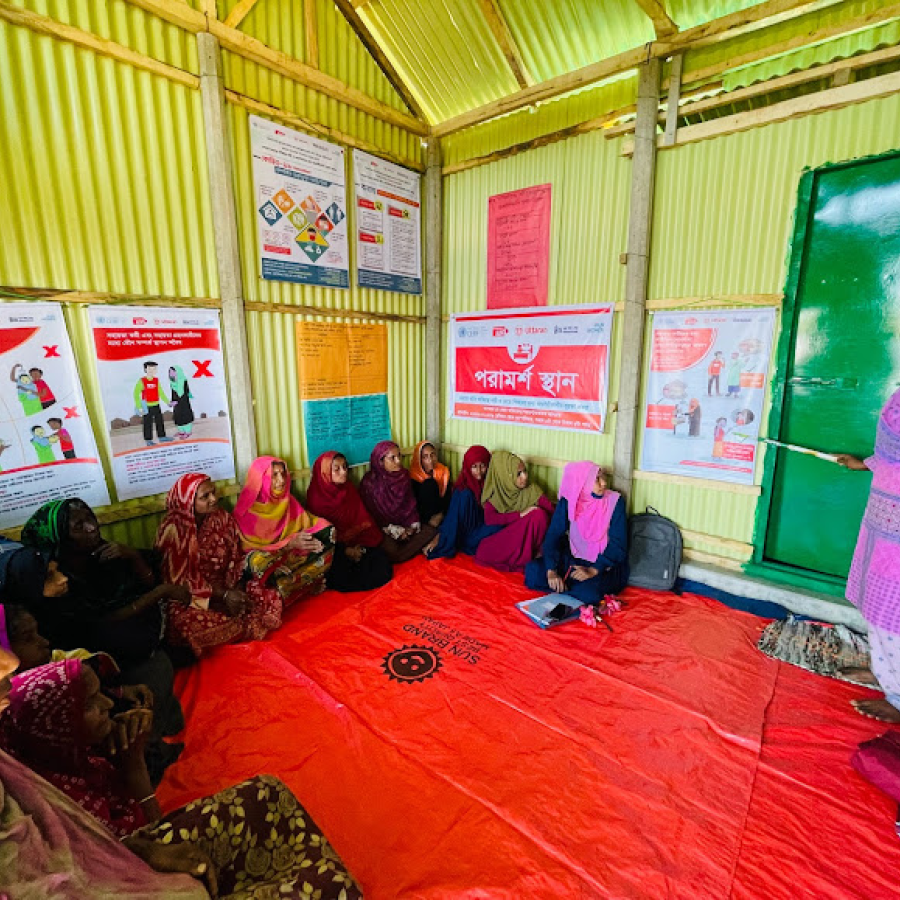UN team visit sites of Flash Flood Humanitarian Response in Sunamganj District of Sylhet Division, Bangladesh

Central Emergency Respond Fund (CERF) allocated $5 million to its 6-month large-scale Flash Flood Humanitarian Response Plan in Bangladesh
About 5,000 people live in Anwarpur, a village full of lush greenery and blue water in the northeast of Tahirpur Upazilla, in Sunamganj District, Bangladesh. A place close to three great rivers, Surma, Kushiyara, and Sari-Gowain, and prone to natural disasters including floods, cyclones, and riverbank erosion among others. In the summer of 2022 flash floods hit the region massively making women and children suffer the most.
To assist those affected by flash floods, the Central Emergency Respond Fund (CERF) allocated a total of $5 million to its six-month large-scale Flash Flood Humanitarian Response Plan to provide lifesaving support to vulnerable communities in the worst-hit districts. The priority areas of the plan were food security and livelihoods, water supply and sanitation, and the protection of displaced women and children.
In November last year, the UN team in Bangladesh visited the flood-affected areas to see how the projects are being implemented and talk to people affected by floods. With the participation of representatives of different UN agencies, the team visited child protection centers in Shantiganj, nutrition, water, sanitation, and hand washing facilities in Anwarpur village along with food distribution centers, multi-purpose safe centers for women, and hospitals in other areas of Sunamganj.
"We didn’t know about rainwater harvesting. Now we try to save rainwater for our use," a 24 year old mother of two children, Shefali Akhter, from Anwarpur village told the UN team.
Following the floods, 8 out of every 10 children living in Anwarpur village have been diagnosed with undernourishment and over 84 children were identified with Severe Acute Malnutrition (SAM), 70 of whom were admitted to the Upazila health complexes for treatment.

A 1.5 year old child Anjuman was admitted to the hospital for 12 days after being diagnosed with severe malnutrition. "She was always sick since her birth, but I didn’t know what was wrong with her. After sessions [with specialists supported by CERF], and nutrition checkups done by the NGOs, she was diagnosed with Severe Acute Malnutrition and admitted to the hospital. They provided us with money for hospitalisation and medicines," Anjuman's mother shared her experience. As well as Anjuman's mother, Happy, Khushnahar, and many other women from this village, said their lives have been improved because of the support provided by CERF. "It is all very new to us, we are still trying to adapt to these healthy habits, and the continuation of these kinds of projects are necessary," these women said.
Being a part of the response plan, United Nations Children's Fund (UNICEF) supported local non-governmental organisations (NGOs) by providing referral support and consultation to high-risk pregnant mothers, as well as basic medicines against high fever, acute diarrhea, skin diseases, urinary tract infections, and injuries. It deployed social workers in most flood-affected districts and assisted to raise awareness about proper handwashing and ensure access to safe water. In collaboration with Department of Social Services (DSS) and Department of Women Affairs (DWA) UNICEF distributed a total of 4,575 non-food items (family, dignity, and recreational kits) to support children, women, and girls affected by floods.

Among the activities funded by the CERF was assistance to pregnant women in flood-affected areas. Social workers supported by the CERF fund were taking care of pregnant women providing them with all necessary services.United Nations Population Fund (UNFPA) supported midwives in the flood-affected areas, those who were taking care of pregnant women providing them with the required equipment - nine babies were born in November last year with the help of midwives.

At Veemkhali and Derai in the Sunamganj region, the UN Women, the UN entity for gender equality and the empowerment of women, provided medical aid and psychological support and helped to raise awareness about gender-based violence among young girls.
In the rural Haor Region, the Food and Agriculture Organization (FAO) provided emergency assistance to smallholder farmers who suffered losses in flash floods. The assistance efforts targeted vulnerable smallholders in three severely affected districts in the northeastern part of the country: Sylhet, Sunamganj, and Netrokona. Fazilat Begum, 56, from Sunamganj district, lost a calf in the floods and then struggled to afford feed for her remaining cow. “My only calf drowned in the flood but somehow the cow survived, although it struggled because it developed malnutrition,” she said. The emergency livestock feed provided by FAO helped Fazilat’s remaining cow to regain its strength.
The World Food Programme (WFP) were working to support flood-affected villagers. The agency distributed food, nutrient supplements, and monetary allowance for the villagers.
Overall, the response activities funded by CERF have been implemented by UNICEF, UNFPA, WFP, FAO, and UN Women together with local humanitarian partners and the government of Bangladesh.



